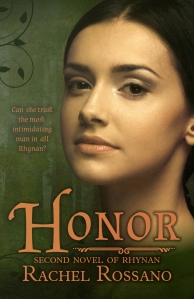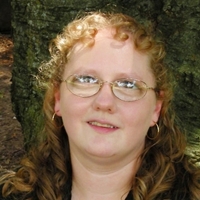*Deep breath* Well, this is terrifying. *Deep breath* Just do it. *Deep breath* I don’t think I can. *Deep breath* Do it! *Deep breath* Nope, this is scary. I changed my mind. *Deep breath* If you don’t do it now, you never will.
Sound familiar?
If you ever took swimming lessons, you probably had to jump off the diving board as part of the final pass. I’m not the greatest swimmer. If I ever fell into a river, I’m pretty sure I’d drown. Unless, you know, a brave firefighter or policeman or bystander jumps in and saves me. Do you know how many times I jumped off the diving board in my life? Three, max. I’m fine right up until I look down and see how far down it is and then I just cannot make myself jump off the board. I was the kid who had the humiliating experience of the ENTIRE swimming pool yelling at me to jump in because I was too scared to do it. Yes, I was embarrassed into jumping off the diving board. Olympics material, I am not.
What does this have to do with writing?
Everything.
This summer I took the plunge into the scary world of indie publishing. I spent about three weeks between my final edit and the night I ultimately pushed the button feeling terrified. No one is going to want to read my book. I’m not ready for this. Maybe I should push back the publishing date again even though this time it’s not driven by the need for edits or cover tweaks or anything like that (even though I was still making some tweaks to the print cover). Maybe this isn’t what I’m supposed to be doing with my life. Maybe I shouldn’t do it yet.
I was going through all the motions of getting ready to click that button and publish, including talking to the tax guys, but in my heart, I was standing on the edge of the diving board absolutely terrified. I suddenly didn’t feel ready anymore. Was my book really as good as it could be? What if people hate it? Or, worse, what if no one reads it? Am I really ready for this?
I didn’t feel ready when I pushed the button and let my book baby out into the world at large. However, I knew that if I didn’t push the button, I would keep finding excuses to put it off for “just a little bit longer” until I finally climbed off the diving board and ran away for good (not that I’d admit it). So, I took that last deep breath, closed my eyes, and stepped off the diving board.
I am now a published author. I am preparing to release the next book in the series, the first full-length novel, this fall. I am actively working on the first draft of Book Two with plans for more books already mapped out. Want to know a secret? *whispers* I still don’t feel ready.
One thing I have learned over this past summer is that you may never feel ready to release your book. But, being afraid, always being poised on the edge of the diving board, isn’t a good way to live your life. If you’re an author like me, then you are very empathetic and it doesn’t take much to make you feel worried about something. This is a gift and curse. Empathy makes me a better writer, but I can’t stand to be surrounded by bad news all day long. It makes my heart hurt. I need good news, I need joy and life and the reminder that there is still light and hope in the midst of the darkness of this world. Hard emotional scene to write? I pour so much of myself into it, feeling what the characters feel, that I’m too drained to write again for days, sometimes weeks until I recharge on good books, fun movies, and maybe some cross-stitch. The good thing is that this makes the characters’ struggles and emotions feel real to the readers, it’s not just a plot point. The bad thing is that sometimes it doesn’t take anything to make me feel discouraged and definitely not ready to be writing anything, much less publishing it. Being a creative personality is hard sometimes. We feel deeply yet we can be our own worst enemies when we listen to the fear that we are not ready, we aren’t good enough yet, we shouldn’t be publishing even though all the feedback from our peer groups, beta readers, and ARCs says “this is your time and it’s definitely ready.” I, personally, don’t want to be that writer who published one or two books and then let fear get the better of me and stashed all the other manuscripts in a drawer to never be seen in my lifetime. I don’t want to let fear stop me from doing what I am meant to do. What I have been called to do. No, my book is not rocketing off the bestsellers charts in a one book wonder moment. It would have been cool to see but I knew going in that it was a pretty far-fetched (read: infinitesimal) improbability. And, I’m not selling as many books as my more probable dream. However, I am selling books. Every copy that sells is progress and I know someone out there is reading my book right now. No one would be reading it if I hadn’t clicked the button. What’s worse? Not selling as many copies as your best-case scenario or not sharing your story with anyone because you got cold feet right before it was time to let your book fly.
If you’re an author who always knows when your book is finally ready and you never second-guess yourself, I applaud you. You’re my new hero. If you’re more like me and feel confident right up until the point that it’s time to click that button or submit to that agent and are then clamped the pincers of terror, know that you are not alone. There are lots of us. The secretly terrified writers who are now published authors forcing ourselves to get back on the diving board for the next jump into the publishing pool. So, the next time you step on the diving board and are staring all the way down, remember that you’re not alone. We’re all standing up there, shaking on the inside, with you but we are not going to be ruled by fear. We are going to take that last deep breath and jump. Remember, courage is not the absence of fear, it is the decision to act in spite of that fear. So, act.



